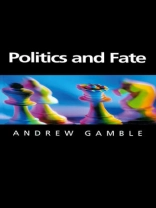Politics was once regarded as an activity which could give human
societies control over their fate. However, there is now a deep
pessimism about the ability of human beings to control anything
very much, least of all through politics. This new fatalism about
the human condition claims that we are living in the iron cages
erected by vast impersonal forces arising from globalization and
technology: a society that is both anti-political and unpolitical,
a society without hope or the means either to imagine or promote an
alternative future. It reflects the disillusion of political hopes
in liberal and socialist utopias in the twentieth century and a
widespread disenchantment with the grand narratives of the
Enlightenment about reason and progress, and with modernity itself.
The most characteristic expression of this disenchantment is the
endless discourses on endism — the end of history, the end of
ideology, the end of the nation-state, the end of authority, the
end of government, the end of the public realm, the end of politics
itself — all have been proclaimed in recent years.
Andrew Gamble’s new book argues against the fatalism implicit in
so many of these discourses, as well as against the fatalism that
has always been present in many of the central discourses of
modernity. It sets out a defence of politics and the political,
explains why we cannot do without politics, and probes the complex
relationship between politics and fate, and the continuing and
necessary tension between them.
This book will be essential reading for students and scholars of
politics, public affairs and political thought.
Содержание
Chapter 1 Fate.
Chapter 2 The End of History.
Chapter 3 The End of the Nation State.
Chapter 4 The End of Authority.
Chapter 5 The End of the Public Domain.
Chapter 6 Politics
Об авторе
Andrew Gamble is Professor of Politics and Director of the Political Economy Research Centre at the University of Sheffield.












